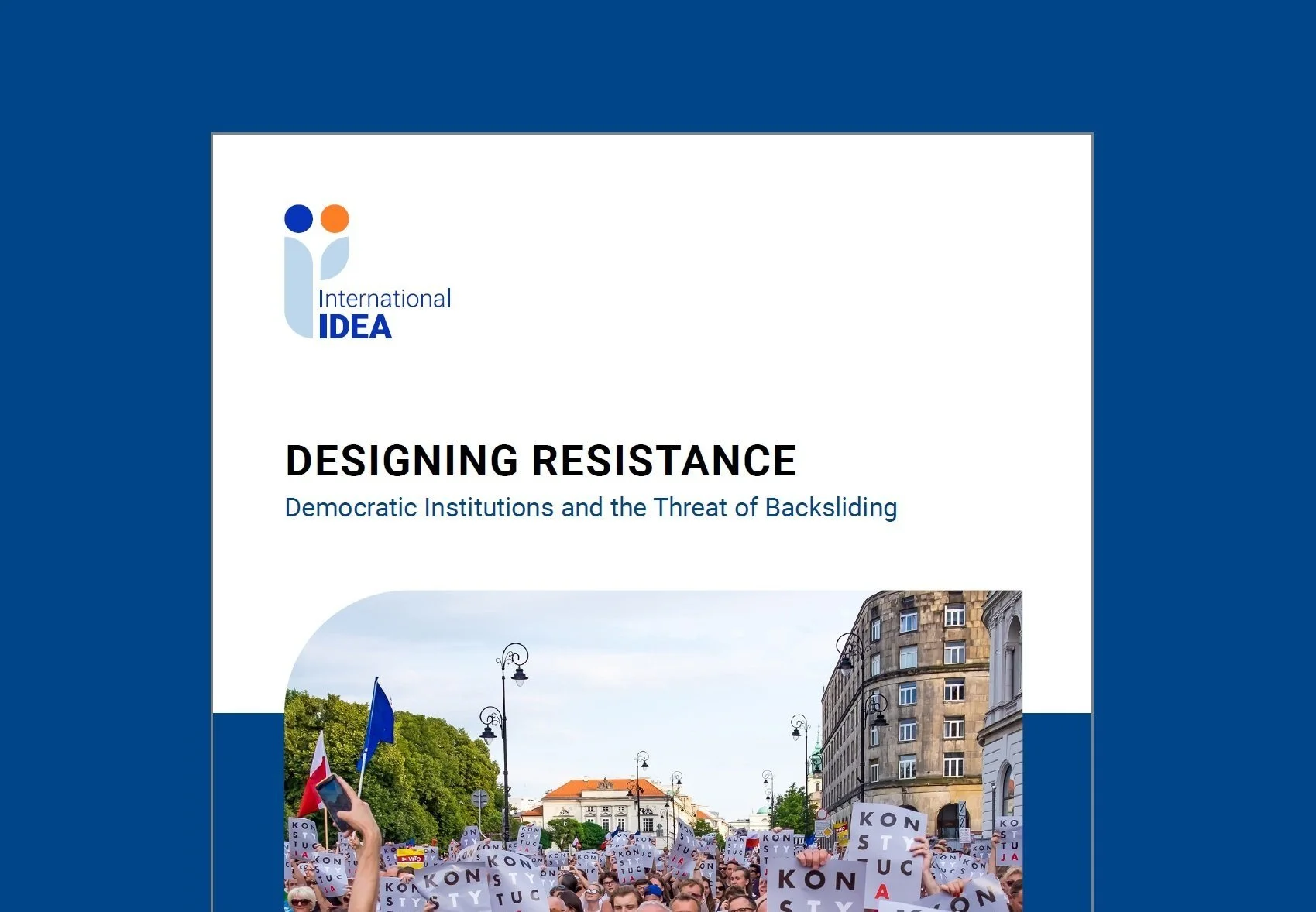REDESIGNING DEMOCRACY:
CAN IT HELP TO ENHANCE RESILIENCE?
-
Democratic decay has revealed serious weaknesses in democratic systems worldwide, and has challenged those who design constitutions and institutions to re-think their models and assumptions. However, it has also revealed sources of resilience and has generated innovation and reference to a wider range of constitutional models.
-
Item description
-
It’s fair to question whether ‘decay’ is the right metaphor to capture this phenomenon.
For instance, [Sadurski, Meyer…]
-
chicken and egg q
-
Description text goes here
-
Description text goes here
-
text goes here
EXAMPLES OF KEY WEAKNESSES
USA
A framework for Supreme Court appointments that relies mainly on political conventions makes it easier for an anti-democrat to subvert established practice to gain more control of appointments. This highlights how constitutional design often assumes key norms will be respected, how written law cannot operate as envisaged in a culture of norm-breaking, and how fuller protections may be needed.
HUNGARY
A unicameral parliament (i.e. with just one chamber) is arguably easier for an anti-democratic government to dominate and control. This is especially true for a unitary state where the electoral system grants very significant parliamentary majorities to a party that are out of step with its actual vote share in elections.
POLAND
Where one top court is exclusively responsible for deciding whether laws and government action are compatible with the constitution (i.e. centralised constitutional review), this arguably makes it easier for anti-democratic governments to ‘capture’ a key obstacle to their plans. This undermines the longstanding view of centralised control as a ‘gold standard’ of review.
Brazil
A coalitional presidential system can foster XXXXXX.
SOME GOOD NEWS: EXAMPLES OF RESILIENCE
POLAND
Centralised constitutional review (where one top court is responsible for deciding whether laws and government action are compatible with the constitution) arguably makes it easier for anti-democratic governments to ‘capture’ the system and remove obstacles to their plans. This undermines the common view of centralised control as a ‘gold standard’ of review.
SOUTH KOREA
Centralised constitutional review (where one top court is responsible for deciding whether laws and government action are compatible with the constitution) arguably makes it easier for anti-democratic governments to ‘capture’ the system and remove obstacles to their plans. This undermines the common view of centralised control as a ‘gold standard’ of review.
BRAZIL
Centralised constitutional review (where one top court is responsible for deciding whether laws and government action are compatible with the constitution) arguably makes it easier for anti-democratic governments to ‘capture’ the system and remove obstacles to their plans. This undermines the common view of centralised control as a ‘gold standard’ of review.
AUSTRALIA
Centralised constitutional review (where one top court is responsible for deciding whether laws and government action are compatible with the constitution) arguably makes it easier for anti-democratic governments to ‘capture’ the system and remove obstacles to their plans. This undermines the common view of centralised control as a ‘gold standard’ of review.
GET THE FULL PICTURE
IDEA Report: Designing Resistance
In 2023 DEM-DEC partner International IDEA issued this interesting report on ‘Designing Resistance: Democratic Institutions and the Threat of Backsliding’.
[Khaitan Here?]
We have curated a list of relevant recent blog posts, government reports, and media articles om Poland, Hungary, Brazil and the USA.
Spotlight: Constitution Transformation Network
DEM-DEC partner CTN blends practice and principle in constitutional design to meet today’s challenges, generating key insights for re-designing constitutional democracies to enhance their resilience.
Book: What can we learn from ‘democratising events’?
This new book, co-edited by Tom Daly and Dinesha Samararatne, explores key democratising events in 7 understudied states across Asia and Africa, helping us to think about the intersections between constitutional design, political contexts, traditions and culture.















